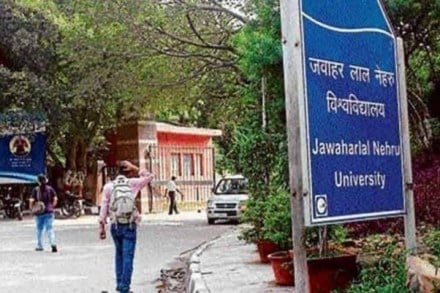The deprivation points model that departed in 2017 is all set to make a comeback for research students seeking admission at the Jawahar Lal Nehru University (JNU). Santishree Dhulipudi, Vice Chancellor of the JNU is considering re-introducing the deprivation points system for research students. This is a unique feature of the admission process that allows students to earn points for their academic achievements.
Former Vice Chancellor and current Chairman of the University Grants Commission M Jagadesh Kumar had in 2017 discontinued the use of the deprivation points system for research degree admissions. However, it was still used for admissions into the postgraduate and undergraduate programs. The introduction of the system would help students from disadvantaged backgrounds and women enter the university.
What is JNU’s deprivation points model?
The concept of the deprivation points system involves adding extra marks to the total score of a student from a disadvantaged background. JNU is the only institute in the country that has this system. The system classifies India’s districts according to their developmental quartiles based on various factors such as the rural population, agricultural workers, and the percentage of households with no access to toilets.
According to the university’s admission policy, the candidates from the districts of Qulpile 1 and 2 are entitled to receive deprivation points. These students are also admitted into the postgraduate and undergraduate programs.
The candidates from the districts of Qulpile 1 and 2 are also entitled to receive 5 deprivation points. In addition, candidates from other regions are also given 5 points. These include those from Kashmir and transgender individuals.
The current system limits the number of points that a student can receive to 10 to mitigate various factors such as their regional, educational, and economic disadvantage. This does not affect the seats allocated for the SC, ST, and OBC students.
When were deprivation points introduced in JNU?
The JNU Students Union released a statement in 2019 stating that the university first introduced the concept of the deprivation points system in 1973. The objective of this process was to make the university more inclusive by allowing students from diverse backgrounds to enter its programs. However, the model was reportedly withdrawn in 1984. It was then restored in the following academic year following student protests.
Why was the system changed in 2017
After the Delhi High Court ruled that the university should follow the guidelines of the University Grants Commission, the JNU administration decided to stop using the deprivation points system for the admission of Ph.D. and MPhil programs in 2017. The guidelines had suggested that the entrance test should be the only qualifying criteria for these programs.
In 2018, the university modified its regulation to introduce a 70% weightage to the entrance tests and a 30% to the viva-voce, after protests by the students from marginalized groups. They claimed that this would put them at a disadvantage and would prevent them from securing a place in the programs due to their poor communication skills.
What JNU wants to restore the deprivation point system
According to the student body, JNSU, the implementation of the new regulations in 2017 affected the intake of students into the university’s postgraduate programs. The number of students from families with annual income below 6,000 decreased from 25.8% in 2016 to 9.8% in 2017-2018. The number of students from rural backgrounds also decreased from 48.4% to 28.2%.
The teachers association of the university claimed that the reduction in the number of students in the university’s research programs over the past couple of years has led to a loss of regional diversity.
